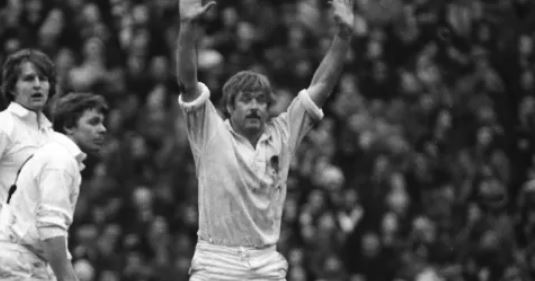Biography
Anthony Neary, born on November 25, 1948, in Manchester, England, is a former international rugby union player who represented England as a flanker. Known for his athleticism and leadership, Neary was a key figure in English rugby during the 1970s and played a significant role in notable victories against international opponents.
Early Life and Education
Tony Neary attended De La Salle College in Salford and later studied at Liverpool University, where he qualified as a solicitor. In addition to rugby, he represented England in U18 basketball, showcasing his versatility as an athlete.
Rugby Union Career
- Club Rugby: Neary played for Broughton Park, where he was part of a celebrated team that produced multiple international players.
- International Career:
- Represented England (1971–1980): Earned 43 caps and scored 19 points. At the time of his retirement, this was a record number of appearances for an England player.
- Captained England in 7 matches between March 1975 and March 1976.
- Played for the Barbarians, rugby’s prestigious invitational team.
- British and Irish Lions:
- Toured South Africa (1974) and New Zealand (1977), earning one cap in the latter tour.
- Famous Wins Against the All Blacks:
- Member of the North West Counties team that defeated New Zealand 16-14 in Workington in 1972.
- Played in the North team that defeated the All Blacks 21-9 at Otley in 1979, joining three other Broughton Park teammates in a historic victory.
Legacy
Neary’s leadership and contributions to English rugby during a highly competitive era earned him recognition as one of the most influential players of his time. His performances against top international teams, including New Zealand, showcased his skill and determination on the field.
Legal Troubles
In 1998, Neary was sentenced to five years in prison after admitting to stealing money from a trust fund belonging to a millionaire friend. Following his release, Neary distanced himself from rugby, stating, “I don’t follow rugby any more; I’m just looking to get on with my life.”
